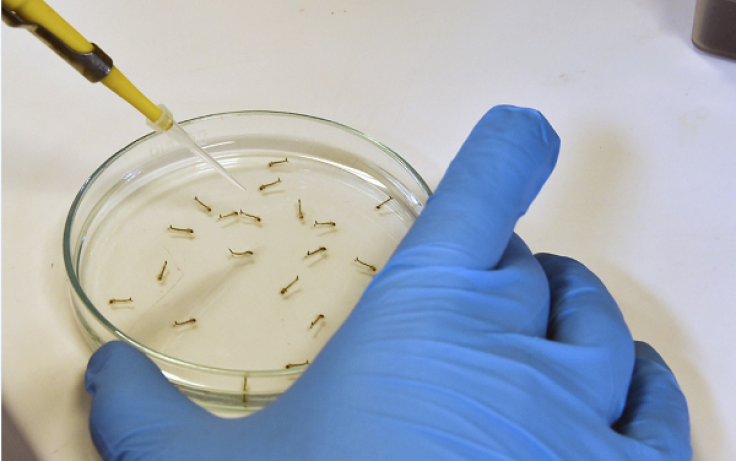What Is Pseudomonas Infection? Prince George Hospital Bacteria Infection Leads To Infants Being Transferred

After three babies tested positive for a potentially deadly bacteria infection at Prince George’s Hospital Center (PGHC) in Maryland, the hospital has decided to transfer babies from its neonatal intensive care unit (NICU) to other local hospitals. Two sources from the county hospital located in suburban Washington, D.C., revealed pseudomonas bacteria was recently discovered in a water pipe that supplies the NICU unit at PGHC about two weeks ago.
Two babies recently died under the care of the hospital, which prompted healthcare providers to investigate the water pipes and perform testing. However, the infants’ deaths have yet to be linked to the recent outbreak of pseudomonas bacteria, ABC News reported.
While the pseudomonas bacteria was only found in one specific area, PGHC is currently testing out the rest of the hospital as well.
According to NBC Washington, three babies have already tested positive for the pseudomonas bacteria but were found to be “"clinically asymptomatic for any active infection with the bacterium."
So far nine babies have been moved to other hospitals.
The Cheverly, Maryland, hospital has since released a statement explaining their reasons to transfer patients.
"While the investigation into the positive bacterium cultures is ongoing by qualified experts, our top immediate priority is the safe and efficient transfer of patients and providing support to our NICU families and staff," the statement read.
No word has been given yet as of when the bacteria surfaced or when the babies died.
Read on below to find out more about pseudomonas bacteria:
What is pseudomonas bacterial infection? According to the Centers for Disease Control and Prevention, pseudomonas infection is a disease caused by bacterium from the genus pseudomonas, which are strains of bacteria found mostly in the environment including soil, water, and plants. They cause an infection in humans called pseudomonas aeruginosa.
What health risks are associated with pseudomonas infections? Pseudomonas can lead to rather serious complications for those who are already ill or have weak immune systems. There’s an even higher risk of death for patients who get infected by pseudomonas while being treated for blood infections, pneumonia or infections from surgery.
Who are the most at risk? Pseudomonas don’t generally cause infections in healthy people. Patients in hospitals recovering from surgery, suffering from wounds from surgery or burns along with those who are on breathing machines or require catheters have the highest risk of life-threatening infections. In fact, the most death causing pseudomonas infections are commonly spread in hospitals from contaminated equipment that hasn’t been properly washed.
Can pseudomonas be treated? Patients suffering from pseudomonas typically receive antibiotic treatments.
© Copyright IBTimes 2024. All rights reserved.












